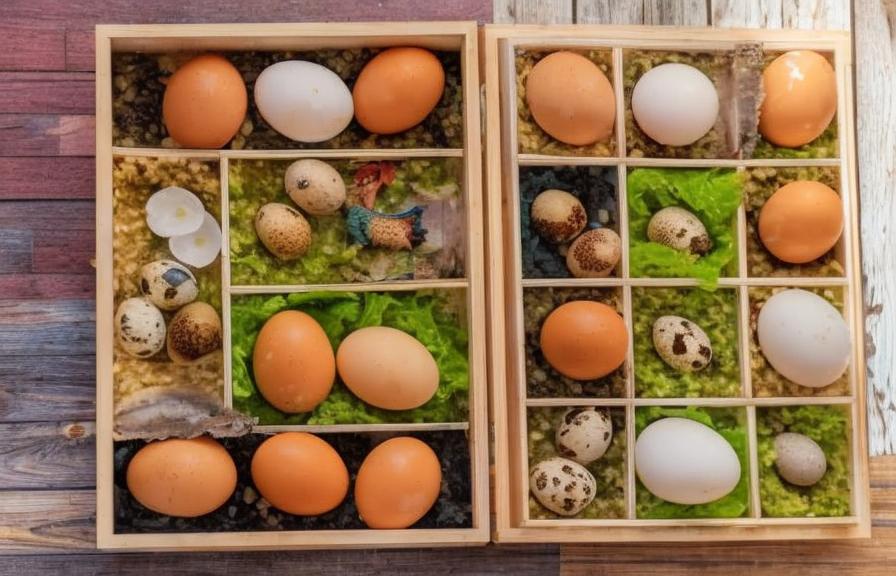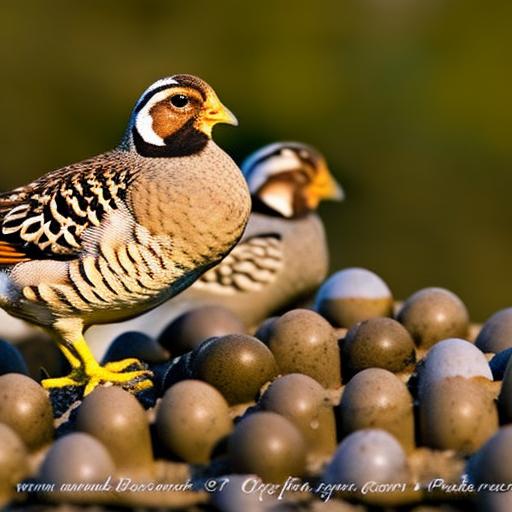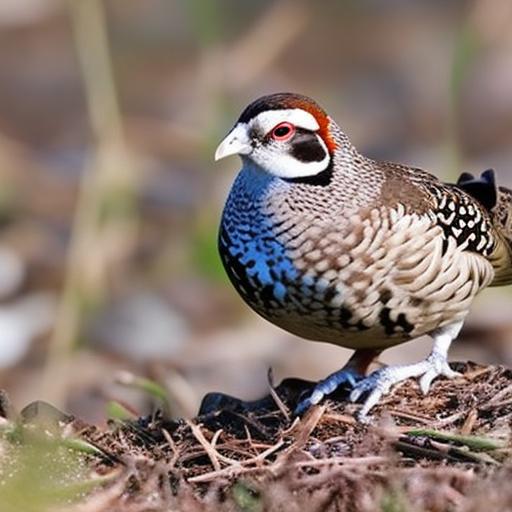Quail eggs breeding is a rewarding and profitable venture for many farmers and homesteaders. Quails are small birds that are known for their fast growth and high egg production, making them an ideal choice for those looking to start a small-scale poultry operation. Quail eggs are also gaining popularity in the culinary world due to their delicate flavor and high nutritional value. Breeding quails for eggs can be a relatively simple process, but it does require careful planning and attention to detail to ensure success.
Quails are known for their ability to adapt to various environments, making them an excellent choice for breeders in different climates and locations. They are also relatively low maintenance compared to other poultry, making them an attractive option for those with limited time and resources. With the right knowledge and preparation, quail breeding can be a fulfilling and profitable endeavor for anyone looking to enter the world of poultry farming.
Key Takeaways
- Quail eggs are a popular choice for breeding due to their small size and high nutritional value.
- When choosing quail breeding stock, look for healthy birds with good egg production and fertility.
- Setting up the quail breeding environment requires a well-ventilated and clean space with proper lighting and temperature control.
- Understanding quail egg incubation involves maintaining the right humidity and temperature levels for successful hatching.
- Caring for quail chicks involves providing them with a balanced diet, warmth, and protection from predators.
Choosing the Right Quail Breeding Stock
Selecting the right breeding stock is crucial for the success of your quail breeding operation. When choosing quails for breeding, it’s important to select birds that are healthy, active, and have good genetic traits. Look for birds that are free from any signs of illness or deformities, as these can be passed on to future generations. It’s also important to choose birds that are known for their high egg production and fast growth rates.
When selecting breeding stock, consider the breed of quail that best suits your needs. There are several different breeds of quail, each with its own unique characteristics and traits. For example, Coturnix quails are known for their high egg production, while Bobwhite quails are popular for their meat production. Consider your goals for your quail breeding operation and choose the breed that aligns with your objectives.
It’s also important to consider the ratio of males to females in your breeding stock. A good rule of thumb is to have one male for every three to five females to ensure successful breeding and fertility. By carefully selecting your breeding stock, you can set the foundation for a successful and productive quail breeding operation.
Setting up the Quail Breeding Environment
Creating the right environment for your quail breeding operation is essential for the health and productivity of your birds. Quails require a clean, well-ventilated, and spacious living area to thrive and reproduce. When setting up the breeding environment, consider factors such as temperature, lighting, and nesting areas.
Quails are sensitive to temperature changes, so it’s important to provide a consistent and comfortable environment for them. Keep the temperature in the breeding area between 60-75 degrees Fahrenheit to ensure optimal breeding conditions. Additionally, provide adequate lighting to stimulate egg production and ensure that the birds have access to natural light during the day.
Nesting areas are also crucial for successful quail breeding. Provide plenty of nesting boxes or areas for the females to lay their eggs in a quiet and secluded space. This will help reduce stress and encourage natural nesting behaviors. Additionally, ensure that the breeding area is kept clean and free from any potential hazards or predators. By creating a suitable environment for your quails, you can promote healthy breeding and maximize egg production.
Understanding Quail Egg Incubation
Once your quails have laid their eggs, it’s important to understand the process of egg incubation to ensure successful hatching. Quail eggs typically take around 17-18 days to hatch, but this can vary depending on factors such as temperature and humidity. To successfully incubate quail eggs, you will need an incubator with precise temperature and humidity controls.
When preparing to incubate quail eggs, carefully clean and sanitize the incubator to create a sterile environment for the eggs. Place the eggs in the incubator with the pointed end facing downwards, as this is the air sac where the embryo develops. Maintain a consistent temperature of around 99-100 degrees Fahrenheit and a humidity level of 50-60% throughout the incubation period.
It’s important to regularly monitor the temperature and humidity levels in the incubator to ensure that they remain within the optimal range. Turning the eggs several times a day is also crucial to prevent the embryos from sticking to the shell membrane. As the hatch date approaches, reduce turning and increase humidity levels to prepare for hatching. By understanding the process of quail egg incubation and providing the right conditions, you can increase the chances of a successful hatch and healthy chicks.
Caring for Quail Chicks
Once your quail chicks have hatched, it’s important to provide them with proper care and attention to ensure their health and well-being. Quail chicks are delicate and require a warm and safe environment to thrive in their early days. Provide a brooder with a heat lamp or heat pad to maintain a temperature of around 95 degrees Fahrenheit for the first week, gradually decreasing by 5 degrees each week until they are fully feathered.
It’s important to provide clean bedding, fresh water, and high-quality chick starter feed to support the growth and development of the chicks. Monitor their behavior and health closely, looking out for any signs of illness or distress. Additionally, provide plenty of space for the chicks to move around and exercise as they grow.
As the chicks mature, consider separating them by gender to prevent overcrowding and potential aggression. Provide suitable housing with nesting areas for the females and roosting areas for the males. By providing proper care and attention to your quail chicks, you can ensure that they grow into healthy and productive birds for your breeding operation.
Managing Quail Egg Production

Managing quail egg production requires careful attention to detail and regular maintenance of the breeding environment. Monitor egg production closely, collecting eggs daily to ensure freshness and prevent overcrowding in nesting areas. Provide clean nesting boxes with suitable bedding material to encourage natural nesting behaviors in your quails.
Regularly inspect your breeding stock for signs of illness or injury, providing prompt medical attention when necessary. It’s also important to maintain a balanced diet for your quails, providing high-quality feed with adequate levels of protein and essential nutrients to support egg production.
Consider implementing a lighting schedule to stimulate egg production during periods of reduced daylight. By providing 14-16 hours of light per day, you can encourage consistent egg laying throughout the year. Additionally, consider rotating your breeding stock every 12-18 months to maintain genetic diversity and productivity in your quail flock.
Troubleshooting Common Quail Breeding Issues
Despite careful planning and management, quail breeders may encounter common issues that can affect egg production and overall flock health. One common issue is low egg production, which can be caused by factors such as stress, inadequate nutrition, or age-related decline in fertility. Addressing these issues by providing a suitable environment, balanced diet, and regular health checks can help improve egg production in your quails.
Another common issue is poor hatch rates during incubation. This can be caused by fluctuations in temperature or humidity levels, improper turning of eggs, or genetic factors. By carefully monitoring incubation conditions and selecting high-quality breeding stock, you can increase the chances of successful hatching in your quail eggs.
Predator attacks can also pose a threat to quail breeding operations, especially if proper precautions are not taken. Secure your breeding area with sturdy fencing or netting to prevent access from predators such as raccoons, foxes, or birds of prey. Regularly inspect the perimeter for any signs of damage or potential entry points.
In conclusion, quail eggs breeding can be a fulfilling and profitable venture with careful planning and attention to detail. By selecting the right breeding stock, creating a suitable environment, understanding egg incubation, providing proper care for chicks, managing egg production, and addressing common issues, you can establish a successful quail breeding operation that yields high-quality eggs and healthy birds. With dedication and knowledge, anyone can enjoy the rewards of raising quails for eggs on their farm or homestead.
If you’re interested in quail egg breeding, you might also want to check out this informative article on creating the perfect environment for your quail in the Poultry Wizard. It discusses the importance of maintaining the right temperature in your coop to ensure the health and productivity of your quail.
FAQs
What is quail egg breeding?
Quail egg breeding refers to the process of raising and breeding quails for the purpose of producing quail eggs. This involves creating suitable conditions for quails to lay eggs, incubating the eggs, and raising the chicks to maturity.
What are the benefits of quail egg breeding?
Quail egg breeding can provide a sustainable source of nutritious and protein-rich eggs. Quail eggs are also known for their health benefits, as they are high in vitamins and minerals. Additionally, quail egg breeding can be a profitable venture for those looking to sell quail eggs or raise quails for meat.
What are the basic requirements for quail egg breeding?
Basic requirements for quail egg breeding include suitable housing for the quails, proper nutrition, access to clean water, and a conducive environment for egg laying and incubation. It is also important to have a good understanding of quail behavior and breeding habits.
How long does it take for quail eggs to hatch?
Quail eggs typically take around 17 to 18 days to hatch. It is important to maintain the proper temperature and humidity levels during the incubation period to ensure successful hatching.
What are some common challenges in quail egg breeding?
Common challenges in quail egg breeding include maintaining optimal conditions for egg laying and incubation, preventing diseases and parasites, and ensuring proper nutrition for the quails. Additionally, managing the breeding ratio and avoiding inbreeding are important considerations for successful quail egg breeding.
Meet Walter, the feathered-friend fanatic of Florida! Nestled in the sunshine state, Walter struts through life with his feathered companions, clucking his way to happiness. With a coop that’s fancier than a five-star hotel, he’s the Don Juan of the chicken world. When he’s not teaching his hens to do the cha-cha, you’ll find him in a heated debate with his prized rooster, Sir Clucks-a-Lot. Walter’s poultry passion is no yolk; he’s the sunny-side-up guy you never knew you needed in your flock of friends!







